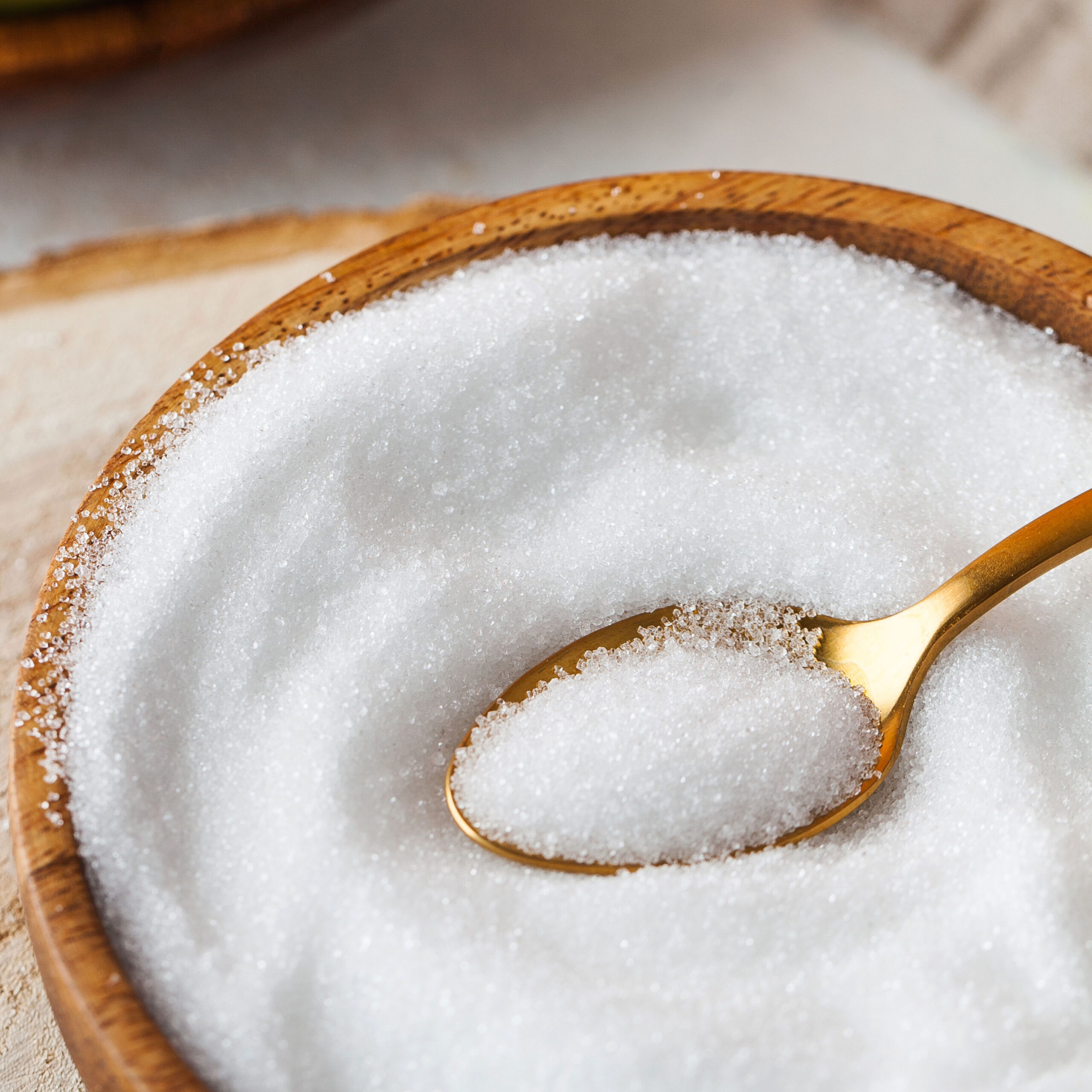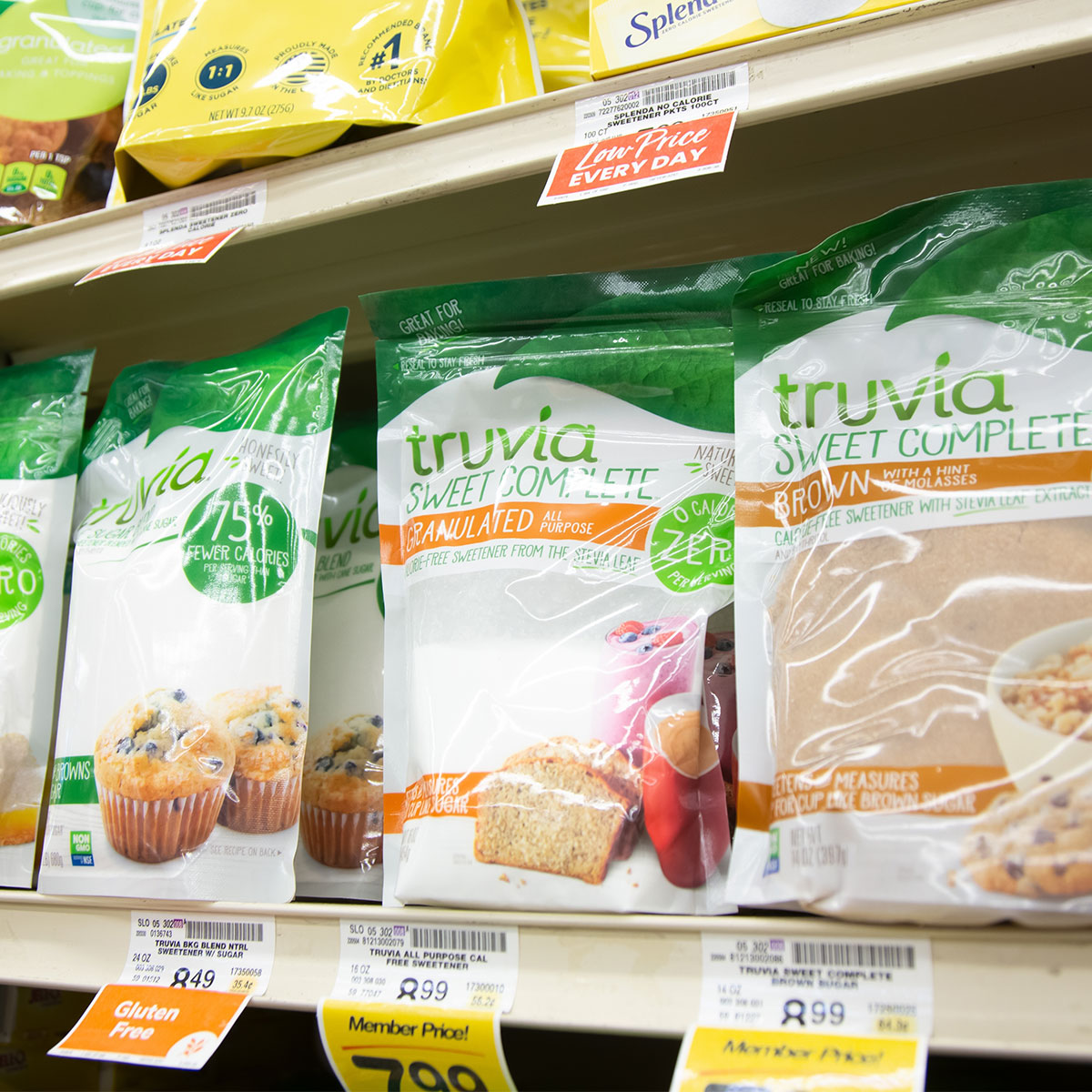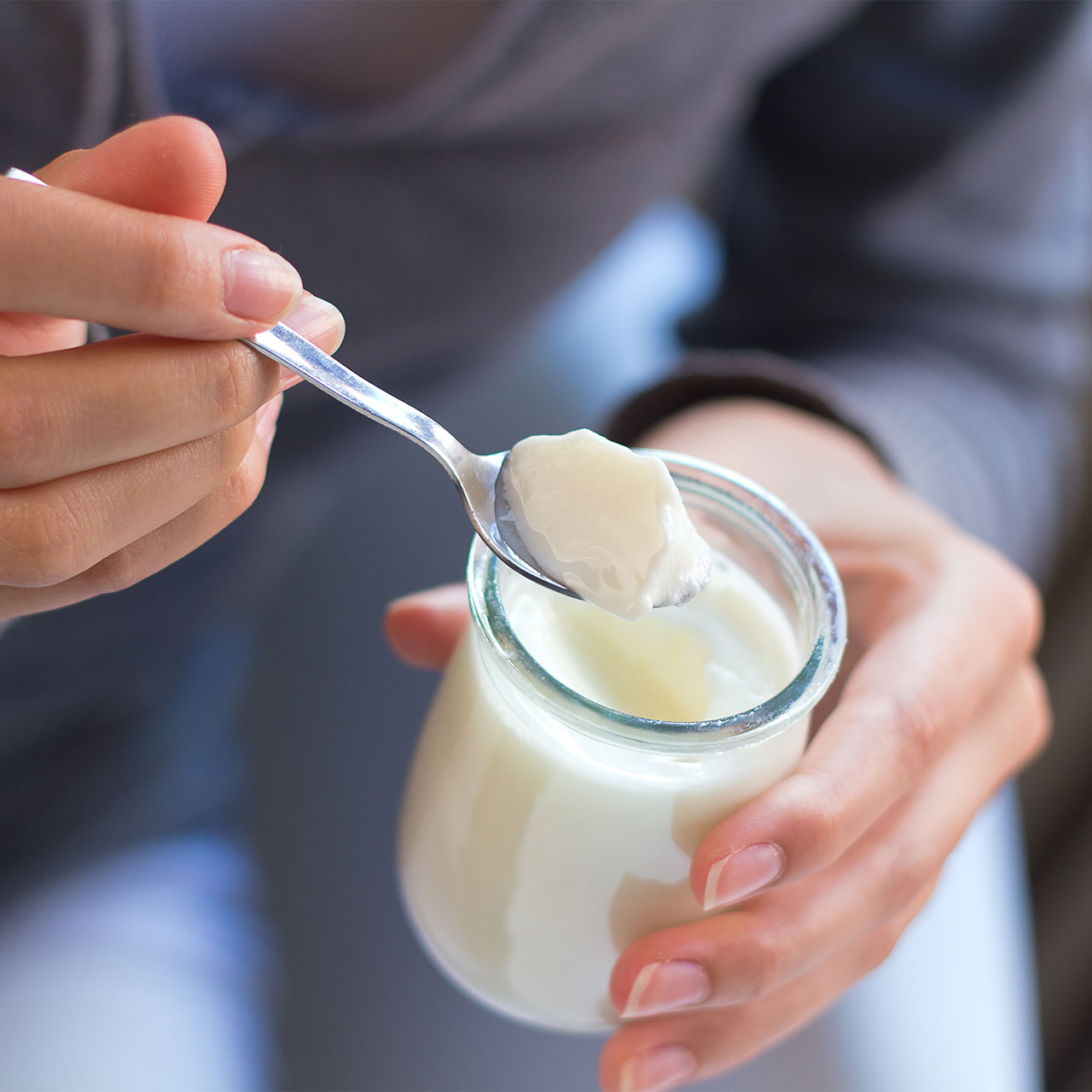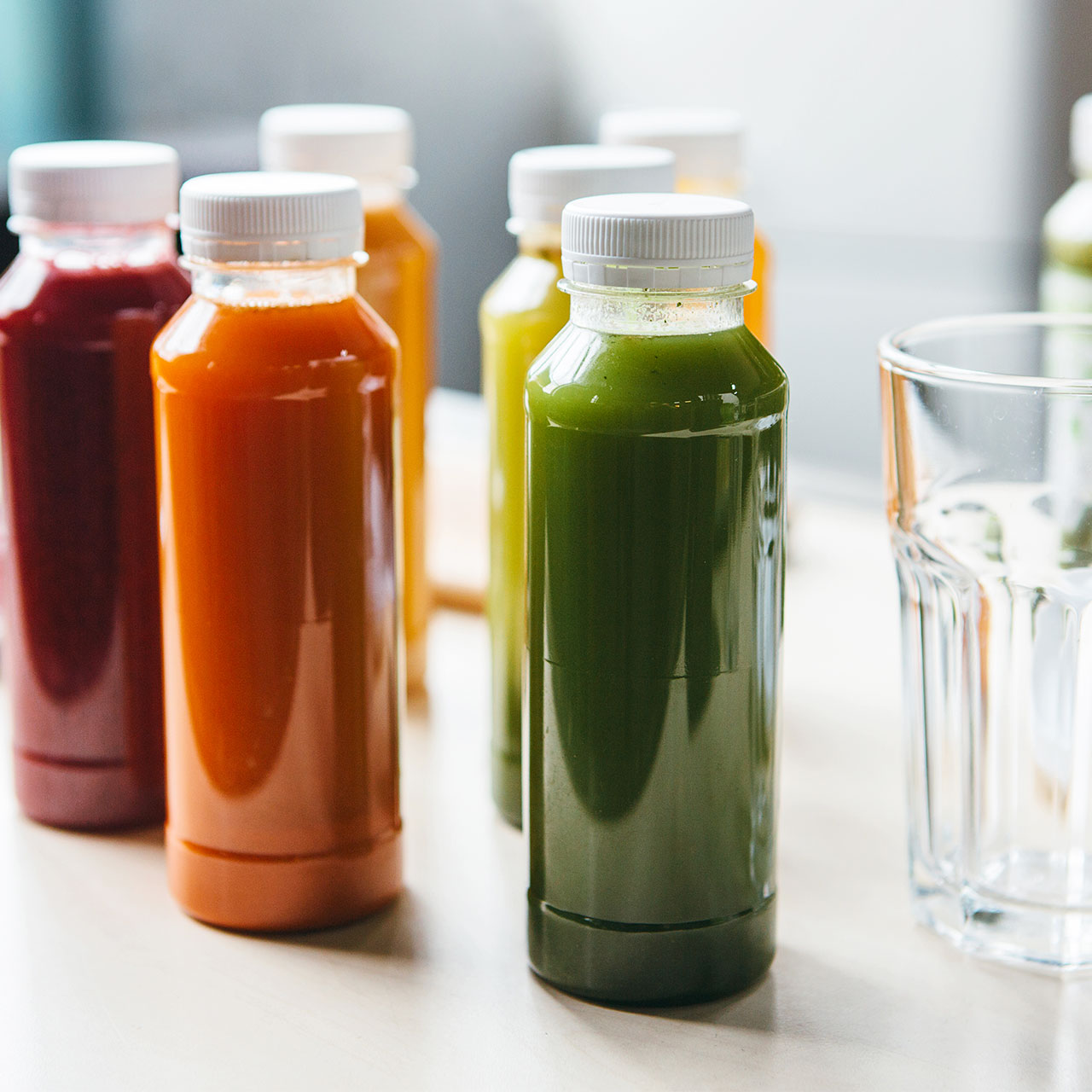If you’re trying to lose weight but still want to enjoy a bit of sweetness in your coffee, you may frequently reach for zero-calorie sweeteners over refined sugar. However, it’s important to remember that these sweeteners all come with their fair share of health risks, too. In fact, a new study shows that erythritol may increase your risk of heart attack and stroke. Erythritol is frequently found in sweeteners like stevia and monk fruit.
This study, which was published in Nature Medicine, tested blood samples of thousands of people who were at risk of heart disease. The researchers found that “higher levels of erythritol were connected to a greater risk of heart attack, stroke or death within three years,” CNN reports.
To learn more about erythritol and its risks, we spoke to dietitian Trista Best. Find all of her expert insight below.
READ MORE:
Experts Agree: The Best Natural Sweetener You Should Switch To In 2023
2 Common Coffee Ingredients Dietitians Warn Can Lead To Weight Gain
2 Ways To Instantly Make Your Morning Coffee Healthier, According To Dietitians


Health risks of erythritol
Best describes erythritol as "a sugar alcohol that is used as a low-calorie sweetener." And while she acknowledges that this product is deemed safe by the U.S. Food and Drug Administration, she tells us this new study should encourage people to limit their intake of the sweetener.
Best broke down the study for us, explaining that "individuals with risk factors for heart disease or diabetes were at an increased risk for heart attack or stroke when erythritol levels in the blood were in the top 25 percent." These risks seem to come from a clotting issue caused by high levels of erythritol in the blood.

It's also worth noting that your heart may not be your only organ at risk when you consume high amounts of erythritol. "Additionally, some studies suggest that consuming large amounts of erythritol may cause an increase in the activity of certain enzymes in the liver, which could potentially lead to liver damage over time," Best warns. Yikes!
She also emphasizes that quality is key when it comes to the sweeteners you consume: "It is important to choose high-quality sources of erythritol and other sweeteners to avoid potential contaminants," she says.
Ultimately, Best notes that "additional research is still needed" on this subject. However, if you're concerned about your heart health, it definitely won't hurt to make the switch away from erythritol-based sweeteners completely. When in doubt, choose natural, high-quality options, and keep your intake to a minimum.


























